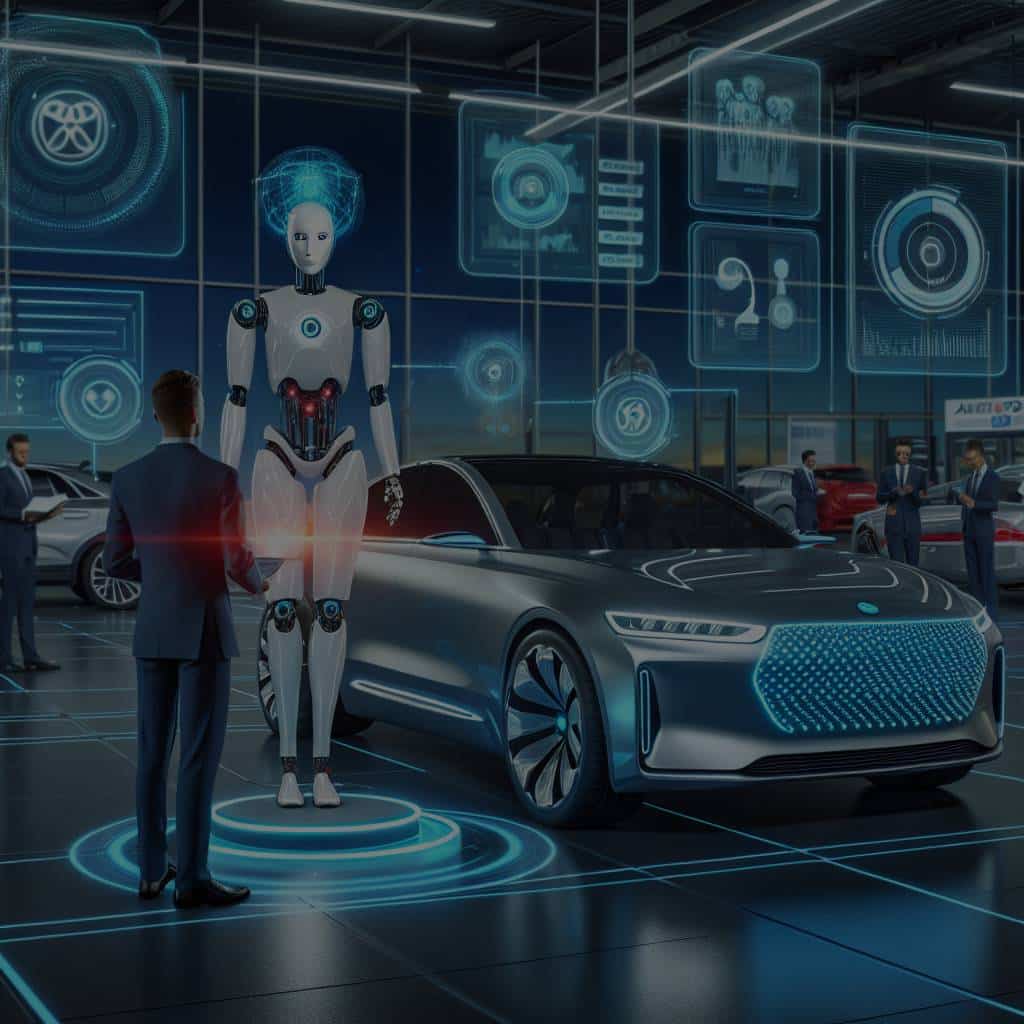How Can the UK Automotive Industry Utilize AI for Improved Customer Relations?

The UK automotive industry is at a pivotal moment where embracing digital transformation can redefine how it interacts with customers. With the advent of autonomous vehicles and connected car systems, manufacturers now have a wealth of data at their disposal. This untapped treasure trove can enhance customer experience and bring about a revolution in automotive marketing. Driven by the power of Artificial Intelligence (AI), the industry can leverage this vehicle data to deliver an enriched, personalised, and seamless customer experience.
Harnessing the Power of AI for Improved Customer Experience
The AI revolution isn’t just about the manufacturing of autonomous cars. It’s about reshaping the entire vehicle ownership experience for customers. By harnessing the power of AI, automotive companies can provide personalised experiences that make customers feel valued and understood.
In the same genre : Build with a concrete dock builder for optimal stability
Automotive companies can use AI to analyse customer data and predict their preferences, helping them to tailor marketing offers and communication. This personalised approach can increase customer satisfaction and drive brand loyalty. For instance, AI can identify when a customer is likely to need a service, ensuring they are reminded at the right time. Not only does this help customers by preventing vehicular issues, but it also increases dealership service appointments, creating a win-win situation.
Enhancing the Driving Experience with AI
While driving, your customers are generating a lot of data. Their speed, braking habits, and route preferences are all valuable insights that can help enhance the driving experience. AI can analyse this data to provide personalised driving tips, suggest optimal routes, and warn of potential maintenance issues before they become a problem.
Topic to read : What Are the Best Social Media Practices for UK Pet Supply Brands?
By integrating AI into vehicle systems, manufacturers can transform driving into an immersive, connected, and personalised experience. For example, AI can remember a driver’s favourite routes and automatically provide traffic updates. It can also adjust in-car settings, such as seat position and climate control, according to the driver’s preferences. This level of personalisation not only improves the driving experience but also strengthens the bond between the customer and the automotive brand.
Leveraging AI for Proactive Customer Service
Forget about reactive customer service. With AI, the automotive industry can transition to a proactive approach that anticipates customer needs and addresses issues before they even arise.
For instance, AI can analyse vehicle data to predict potential issues, enabling the manufacturer or dealership to contact the customer and arrange for proactive maintenance. This not only prevents unpleasant surprises for the customer but also saves them time and money. Furthermore, AI chatbots can provide instant support to customers, answering their queries and resolving their issues in real-time. This significantly enhances the customer experience, boosting customer satisfaction and loyalty.
Driving Customer Loyalty with AI-powered Marketing
In a competitive market, building and maintaining customer loyalty is crucial for the survival of automotive companies. AI can help automotive brands take their marketing efforts to the next level, driving customer loyalty and increasing sales.
AI can analyse customer data to understand their preferences, behaviours, and buying patterns. It can then use this information to create personalised marketing messages that resonate with each customer. For example, if the AI knows a customer is interested in electric vehicles, it can send them information about new electric models, charging infrastructure, or incentives for electric vehicle owners. Such targeted marketing is much more likely to engage customers and encourage them to make a purchase.
Paving the Way for Autonomous Cars with AI
Lastly, AI is at the heart of the autonomous vehicle revolution. As the UK automotive industry gears up for this new era, AI will play a crucial role in shaping the customer experience.
Autonomous cars will generate an immense amount of data, and AI will be key in analysing this information to understand customer behaviour and preferences better. This can help manufacturers to design vehicles that are not only autonomous but also personalised to each customer’s needs. Additionally, AI can also ensure the safety and efficiency of autonomous cars, further enhancing the customer experience.
In summary, AI has the potential to transform the UK automotive industry, creating a customer-centric approach that drives satisfaction and loyalty. By leveraging AI, automotive companies can provide a highly personalised experience, proactive customer service, engaging marketing, and an enhanced driving experience.
The Role of AI in Supply Chain Management and Predictive Maintenance
The digital transformation of the automotive industry extends beyond enhancing the customer experience to optimizing the supply chain and ensuring predictive maintenance. AI plays a significant role in these areas by enabling machine learning and computer vision technologies to gather and analyse vast amounts of data.
The automotive supply chain can be complex, with multiple parts and components sourced from various suppliers. Tracking this complex network can be challenging, but AI can streamline the process by providing real-time location tracking and predicting potential disruptions. This leads to an efficient supply chain that can deliver cars faster, significantly improving the customer experience.
Predictive maintenance is another area where AI plays a crucial role. By analysing data from various vehicle components, AI can predict when a part is likely to fail and arrange for its replacement before it causes any issues. This approach reduces vehicle downtime, saves customers’ money, and enhances their overall experience. AI-driven predictive maintenance can also spot patterns that humans might miss, leading to improved vehicle design that requires less maintenance.
Realising the Full Potential of AI in the UK Automotive Sector
The UK automotive sector is beginning to realize the full potential of AI in revolutionizing customer relations, but there are several steps to be taken to ensure complete transformation.
Firstly, automotive companies must invest in training their staff on how AI can enhance customer service and the overall customer experience. This includes understanding how to use AI to analyse big data, drive digital marketing campaigns, and enhance autonomous driving capabilities.
Secondly, automotive companies must collaborate with AI technology providers to leverage cutting-edge technologies such as digital twin modeling and conversation intelligence. These technologies can provide automotive companies with a wealth of insights to enhance the customer experience.
Lastly, the automotive industry must work closely with regulatory bodies to ensure that the use of AI does not infringe upon customer privacy and safety. As autonomous vehicles become more common, it is crucial to have clear guidelines on data usage and safety standards.
Conclusion
In conclusion, the UK automotive industry stands on the cusp of a digital revolution powered by Artificial Intelligence. The advent of AI offers promising prospects for improved customer relations, from providing a personalized experience to offering proactive customer service, enhancing the driving experience, and optimizing the supply chain.
However, the industry must be ready to navigate the challenges that come with this digital transformation. Proper training, collaboration with tech providers, and adherence to regulatory standards are crucial to successfully leveraging AI. If done right, the integration of AI could propel the UK automotive industry to new heights, providing a customer experience that is unmatched in its personalized attention and proactive service. Despite the challenges, the industry’s future looks bright with the immense potential of AI waiting to be unlocked.
